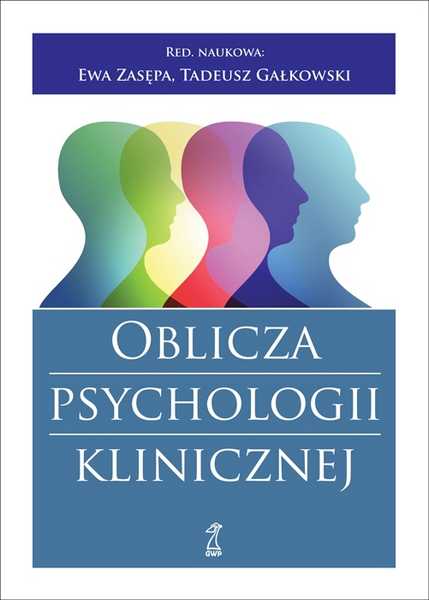A mentor is a wise teacher, while a master is someone who not only skilfully shows us the ways of knowing, but also makes us aware of and discovers our scientific and research potential. Unfortunately, nowadays, students less and less recognise lecturers as masters and less and less frequently call them authorities. Therefore, if pupils, students and colleagues pay tribute to a deceased mentor, special attention should be paid to this.
"Faces of Clinical Psychology" is a publication prepared in memory of Professor Janusz Kostrzewski. Professor Kostrzewski, who died in 2012, was not only an excellent scientist, psychologist and didactician, expressive and decisive in his views, but also - as can be seen from the articles included in the publication - an extraordinary man, sensitive and open, ready to provide help and advice to those who needed it.
In all the statements included in the first part of the book, Professor Kostrzewski's name is referred to as a master, a mentor and an excellent researcher specialising in the clinical psychology of children and adolescents. Moreover, Janusz Kostrzewski was a man who, although he developed his career in the realities of the People's Republic of Poland, i.e. at a time when it was not possible to travel freely to participate in scientific conferences abroad, he imported scientific articles from there and shared the information he acquired with his colleagues and students.
The first part of the work, edited by Prof. Ewa Zasępa and Prof. Tadeusz Gałkowski, contains recollections of Janusz Kostrzewski's students and friends. At the outset, the editors of the publication introduced the Professor's scientific and professional biography, while the other authors of the articles described him as an outstanding psychologist, a demanding lecturer, but also a family man who always willingly recalled his youthful Lviv days, talked about his loved ones, enjoyed every success of his children and the closeness of his grandchildren.
photo: GWP
Part Two of Clinical Psychology brings together articles on the experience of illness. The authors also looked at ways of coping with illness through social support, with the help of developed emotional competences and the regulation of emotions, primarily negative ones. The information in Chapter 15 may be of interest not only to psychologists but also to physicians and people with hypertension; Article 17, on the other hand, is devoted to the psychomedical aspects of the procreative experience of women with epilepsy, i.e. an issue of interest to professionals guiding and supporting pregnant women.
Anna Hunca-Bednarska, in her paper entitled Organisation of the stimulus field revealed in statements inspired by the Hermann Rorschach inkblot test, focused on research devoted to comparing a group of parents and their adult children with schizophrenia with a group of parents and their adult children not showing symptoms of mental illness. She discussed extensively the profiles of the groups studied and the results of the research.










